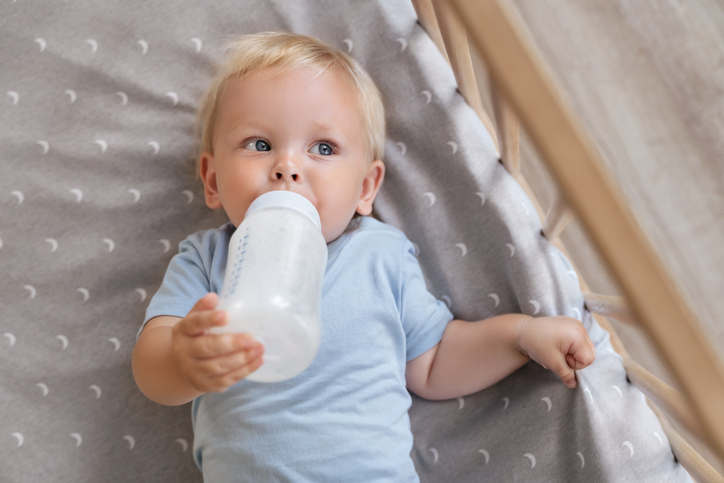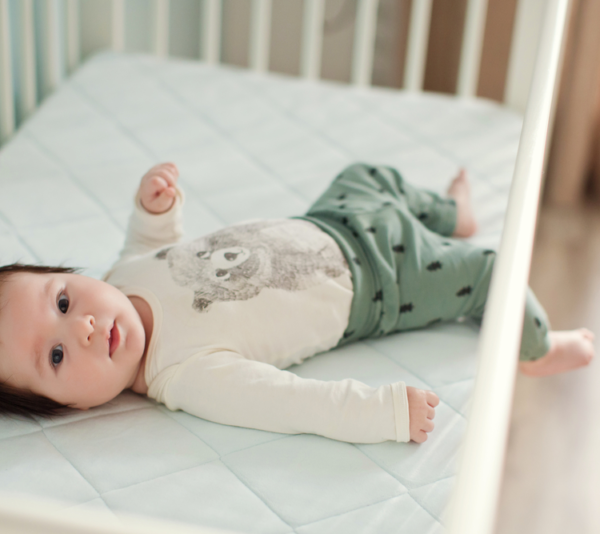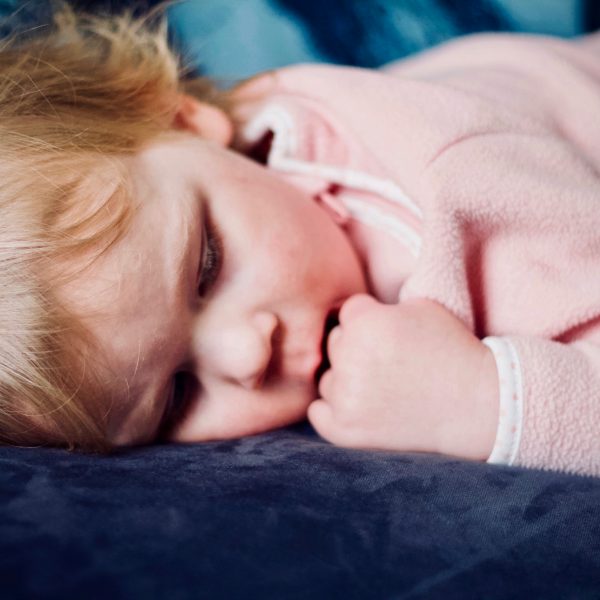Bottles and beds: Red Nose issues important safety advice to clear up confusion

Many early childhood education and care (ECEC) services will allow young children to lie on a low stretcher bed and drink a bottle while going off to sleep.
Recently an educator contacted Red Nose, seeking clarification about the practice, and asking if the practice is acceptable if children are closely supervised, or if children must be held or sitting up when having a bottle.
“The issue of baby having a bottle to go to sleep is not part of the Red Nose Safe Sleep guidelines, however, there is consistent information and recommendations to suggest that this may not be best practice,” a Red Nose representative said.
Many Child Health and Safety Organisations do not recommend babies having a bottle when being placed for sleep, and concerns about a child vomiting when settling, or while asleep after having a bottle must also be considered.
In addition, settling babies to sleep with bottles of milk can lead to early childhood tooth decay, particularly if it happens often.
“The problem is that the milk contains natural sugars, which can build up around baby’s teeth. The germs on the teeth can turn the sugars into acids, which eat away at the enamel of the baby teeth,” representatives continued.
Instead, Red Nose recommends that babies are not settled with a bottle of milk, and that if extra fluid is needed, cooled boiled water is offered before the child goes to bed.
Bottles in bed are also considered a choking risk, with Red Nose saying to take the bottle away when the baby or child is finished.
“Babies who fall asleep while bottle-feeding can draw liquid into their lungs,” the representative explained.
“They might then choke on it or inhale it. This is like what happens when you have something ‘go down the wrong way’. It’s more dangerous for a baby than it is for you, because a baby isn’t as good at waking up if something interferes with breathing.”
If a baby gets used to falling asleep with a bottle in bed, they might depend on it to get to sleep, which can make it more difficult for a child to fall asleep or settle independently.
In addition, children and babies who consume milk while lying flat can have milk flow into their ear cavity, which can cause ear infections.
Ultimately Red Nose issued the following response to the enquiry: “If you decide to continue with this practice, supervision and risk assessment is important to consider.”
Popular

Quality
Practice
Provider
Research
Workforce
Honouring the quiet magic of early childhood
2025-07-11 09:15:00
by Fiona Alston

Practice
Provider
Quality
Research
Workforce
New activity booklet supports everyday conversations to keep children safe
2025-07-10 09:00:16
by Fiona Alston

Quality
Practice
Provider
Workforce
Reclaiming Joy: Why connection, curiosity and care still matter in early childhood education
2025-07-09 10:00:07
by Fiona Alston












